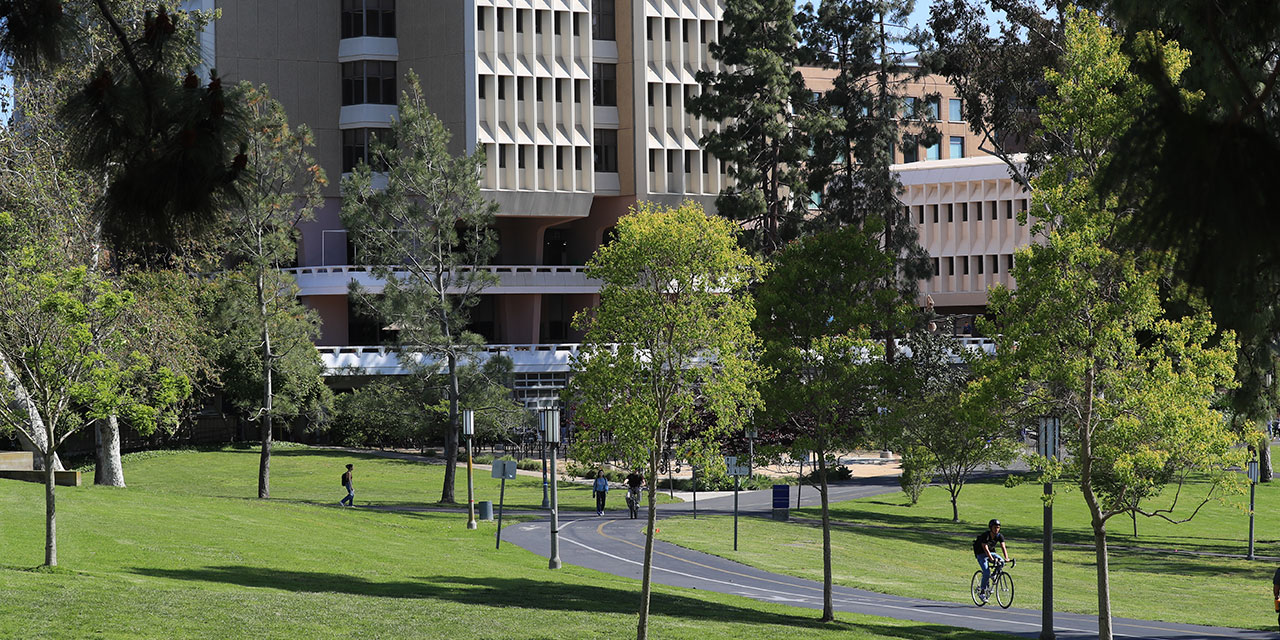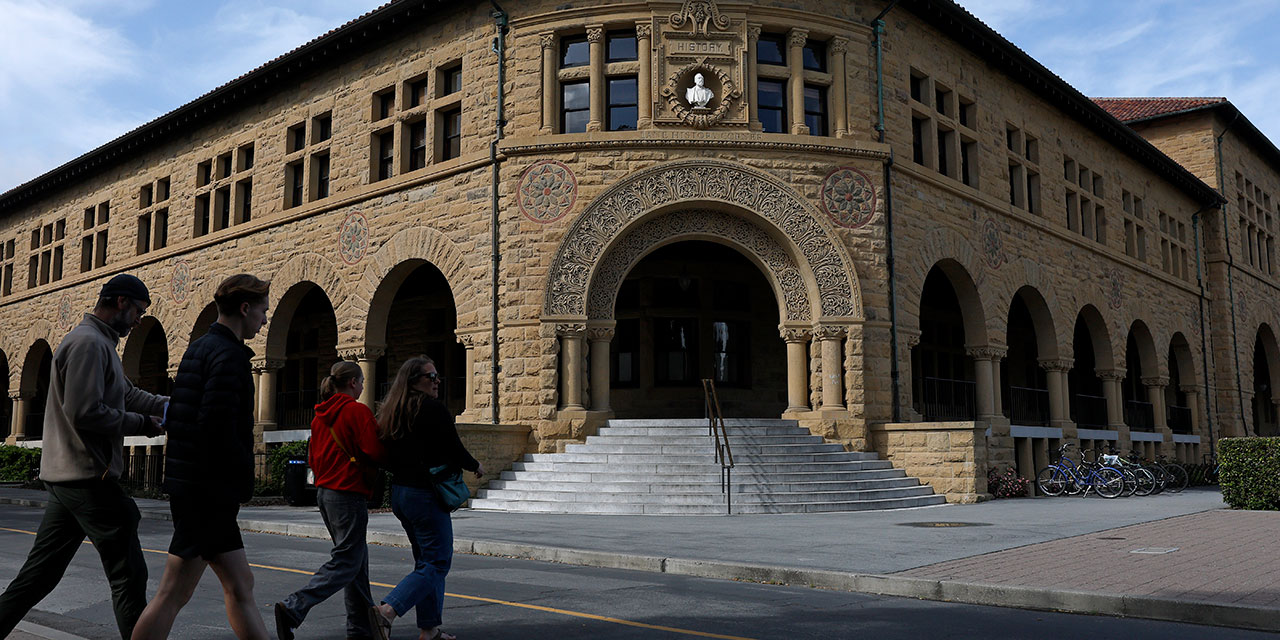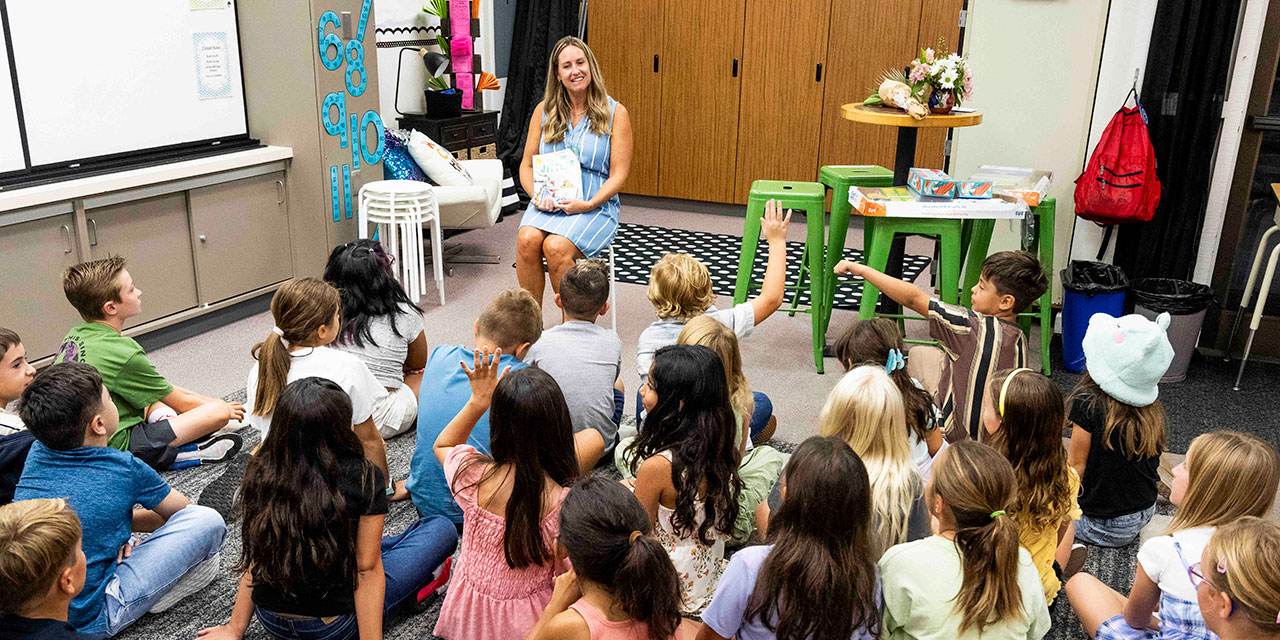As students, professors, and administrators get ready to return to campus for what events both in the United States and abroad suggest will be another tumultuous year, the American Association of University Professors has decided to add fuel to the fire by announcing that it no longer categorically opposes academic boycotts. The decision by the once-august and respected organization is not surprising. After all, the AAUP is now led by a professor of journalism and media studies who a week ago used his official platform to call J. D. Vance “a fascist” and to claim that America’s colleges and universities are not in fact “ideological indoctrination centers.”
The AAUP was founded in 1915, in large part to “define fundamental professional values and standards for higher education.” In December of that year, in the first volume of its Bulletin, the AAUP promulgated a “Declaration of Principles on Academic Freedom and Academic Tenure,” which Keith E. Whittington in his outstanding new book You Can’t Teach That!: The Battle over University Classrooms describes as “provid[ing] the philosophical basis for a more robust understanding of academic freedom in the United States.” Twenty-five years later, the AAUP issued what remains to this day—after a few “interpretive” footnotes added in 1970—the most influential brief document on the subject: the “1940 Statement of Principles on Academic Freedom and Tenure,” which, to quote Whittington, “stripped away the philosophical discussion that dominated the 1915 Declaration and honed in on a small number of key commitments that universities should make to their faculties.”
Finally, a reason to check your email.
Sign up for our free newsletter today.
In late April 2005, the British Association of University Teachers voted to boycott two institutions of higher education in Israel, Bar-Ilan and Haifa Universities, a move that would bar all Israeli scholars who did not denounce “their state’s colonial and racist policies” from participating in conferences or engaging in joint research with British colleagues. Scholars around the world were outraged—even Jon Wiener, writing in The Nation, called it “a mistake”—and within just days, the AAUP’s “Committee A,” charged with watching out for academic freedom and tenure, released a strong statement, “The AAUP Opposes Academic Boycotts,” that warned of the “damage [to] academic freedom.” By the end of May, the AUT had reversed its position, and the following year, the AAUP published a piece titled “On Academic Boycotts” that states clearly, “In view of the Association’s long-standing commitment to the free exchange of ideas, we oppose academic boycotts” and “On the same grounds, we recommend that other academic organizations oppose academic boycotts.” The lead author of the piece was Joan Wallach Scott.
In 2013, Scott, writing in the AAUP’s then-newish Journal of Academic Freedom, publicly changed her mind. And last Friday, the day after its president referred to J. D. Vance as a fascist, the AAUP adopted a revisionary statement that Committee A had unanimously approved. Released on Monday, this statement “supersedes” the one from almost two decades ago and states that “academic boycotts are not in themselves violations of academic freedom; rather, they can be considered legitimate tactical responses to conditions that are fundamentally incompatible with the mission of higher education.”
Although the statement does not mention the Israeli–Palestinian conflict, it is certain that anti-Israeli and pro-Palestinian feelings lie behind it. In crass terms, the difference between 2005 and now would seem to be positive feelings toward the evil actions of Hamas on October 7 of last year—actions that campus activists around the country spent much of the last academic year grotesquely celebrating and that, I fear, they are about to resume celebrating.
Matthew X. Wilson ends his National Review article on the AAUP’s decision by suggesting that faculty members “disaffiliate themselves from the AAUP and consider joining an organization like the Academic Freedom Alliance, which defends professors of all ideological stripes at risk of having their academic-freedom rights violated.” As a founding member of the AFA, I enthusiastically second the idea.
Consider this: six months ago, the AAUP announced that it was establishing a Center for the Defense of Academic Freedom, made possible by a grant of over $1.5 million from the Mellon Foundation. According to the press release, the center “will compile a database of the political organizations, think tanks, donors, and political operatives most responsible for the current wave of attacks and evaluate their success in shaping the trajectory of US higher education.” But would you believe it? The unpalatable think tanks, donors, political operatives, and current attacks are all on the right! In May, the center’s director, Isaac Kamola (coauthor of the 2021 book Free Speech and Koch Money: Manufacturing a Campus Culture War), published a lengthy white paper titled “Manufacturing Backlash: Right-Wing Think Tanks and Legislative Attacks on Higher Education, 2021–2023.”
Surely the AAUP should be able to issue a report that criticizes would-be excesses on the right without ignoring the fact that much of the apparatus of the American professoriate is propelled—financially, intellectually, and pedagogically—by far-left individuals and groups inside and outside the academy who do not believe in free speech, academic freedom, or the right of Israel to exist. It is telling that neither Kamola nor any of the 15 fellows of the center, whose names were announced in June, are among the nearly 900 members of the AFA. Nor are any of the AAUP’s 14 “elected leaders,” or the chair of Committee A (on whose progressive activism my AEI colleague Samuel J. Abrams has commented), or any of the other 13 current members of said committee (two of whom are also among the elected leaders). Nor, furthermore, are any of the people associated with the Journal of Academic Freedom, at least in recent years: neither of the two “faculty coeditors” or any of the 21 or 19 other contributors, respectively, to the latest issue, vol. 14 (2023), or vol. 13 (2022); and neither of the two editors of vol. 12 (2021) or any of the 26 other contributors to that number (one of them Kamola).
As I was writing these words, I wondered what Cary Nelson thinks. Nelson, a member of the AFA, was president of the AAUP from 2006 to 2012. In 2013, he responded sharply to Scott’s change of mind; four months ago, he published a book titled Hate Speech and Academic Freedom: The Antisemitic Assault on Basic Principles, the manuscript of which he completed shortly before October 7. Well, Nelson has now weighed in: “We must no longer use AAUP policy as the gold standard for academic freedom.” He’s correct.
Photo: Education Images / Universal Images Group via Getty Images




